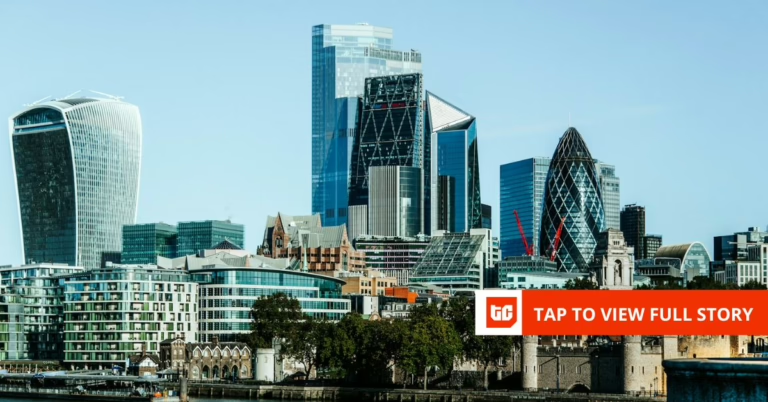In June 2019, Airtel Africa made a remarkable debut on the London Stock Exchange, raising close to $700 million and securing a spot in the FTSE 100 within just two years. Shortly thereafter, Helios Towers followed suit with a $364 million initial public offering (IPO), joining the FTSE 250 in a mere two months. These milestones highlight the impressive scale, speed, and global recognition African enterprises can achieve by accessing international capital markets.
However, for Africa’s emerging wave of fast-growing, technology-focused companies, the path to public listing has been far more challenging. Traditional listing criteria and stringent international exchange requirements have often posed significant obstacles, creating a disconnect between the continent’s dynamic tech sector and the global investment landscape-even as private funding inflows reach unprecedented levels.
Recent reforms in London’s listing framework-the most substantial in over 40 years-are poised to transform this scenario. By lowering the free-float threshold from 25% to 10%, eliminating the three-year revenue history mandate, and introducing other measures to expedite market entry, these changes open new doors for African high-growth firms ready to capitalize on global capital opportunities.
Unlocking Growth: The Strategic Value of an IPO
An IPO represents a pivotal evolution in a company’s journey, transitioning it from a private entity to a globally recognized public enterprise. This process not only unlocks access to long-term capital essential for scaling operations but also validates the company’s market value and provides liquidity options for shareholders and stakeholders alike.
The impact of going public extends beyond finances. It enhances brand prestige, solidifies competitive positioning, and signals robust governance standards to customers, regulators, and investors. Employees often experience increased engagement and motivation, especially when offered equity participation, fostering a culture of shared success.
Publicly traded shares serve as versatile assets, facilitating strategic initiatives such as expansion, mergers, and talent acquisition incentives. For founders, IPOs offer a platform to build enduring legacies without relinquishing control. Investors benefit from transparent exit strategies and liquidity, reinforcing confidence in channeling more capital into African markets. Historically, IPOs have outperformed many traditional investment benchmarks, underscoring their value as an asset class.
London: A Premier Hub for African Capital Access
For African entrepreneurs, selecting the right exchange is as critical as the decision to go public. London has been a cornerstone of African finance for nearly a century, providing companies with vital growth capital and unparalleled international exposure through the London Stock Exchange (LSE).
Currently, the LSE lists approximately 110 African companies spanning over 20 countries, collectively valued at more than $110 billion. Since 2023, it has facilitated over 90% of Africa’s international bond issuances, underscoring its pivotal role in the continent’s financial ecosystem.
One distinctive advantage is the option for dual listings. Around fifty African firms maintain listings both domestically and in London, with some extending to additional markets. This strategy grants access to a broad investor base, enhanced liquidity, and strategic acquisition opportunities while preserving local market ties. For instance, Seplat Energy leveraged its London listing to acquire $1.3 billion worth of ExxonMobil assets in Nigeria, with its share price surging 30% post-announcement and a 73% year-to-date increase.
International companies constitute over one-third of LSE listings, reflecting London’s extensive global reach. Approximately 60% of shares are held by international investors, supported by the UK’s £10.9 trillion asset management sector-over three times the nation’s 2023 GDP-highlighting the depth of capital accessible to African enterprises.
These figures are particularly striking given the relative scarcity of African IPOs recently, signaling vast untapped potential for the continent’s diverse companies to engage with global capital markets.
AIM: A Launchpad for Emerging African Tech Firms
It is important to recognize that not all African tech companies are immediately ready for the Main Market’s rigorous standards. The Alternative Investment Market (AIM), established in 1995, offers a more adaptable and growth-oriented platform. Rather than a final destination, AIM serves as a springboard, allowing companies to access public funding earlier under a regulatory framework tailored to lean, founder-led businesses.
AIM’s regulatory environment is deliberately flexible, governed by a principles-based approach and overseen by nominated advisers (Nomads). Unlike the Main Market, AIM does not require a minimum revenue history, market capitalization, or free float, significantly lowering entry barriers. This structure reduces listing expenses and simplifies reporting obligations. Over 60% of AIM-listed companies benefit from dedicated broker and analyst coverage, enhancing visibility that many smaller or private firms find difficult to achieve elsewhere.
Moreover, AIM-listed companies tap into a specialized UK investor segment, including participants in Venture Capital Trusts (VCTs) and Enterprise Investment Scheme (EIS) funds. These vehicles, incentivized by UK tax benefits, are designed to support high-growth ventures, contributing to the UK’s vibrant tech sector valued at over £1 trillion. This ecosystem exemplifies the substantial capital available to innovative companies navigating early growth phases.
Preparing for IPO Success: Bridging the Readiness Divide
Despite the recent reforms, achieving IPO readiness remains a complex, multi-year endeavor. Partnering with experienced advisors familiar with African markets is crucial. Their expertise helps refine the company’s equity narrative, select optimal jurisdictions for incorporation, enhance governance and financial reporting standards, strengthen internal controls and risk management, and determine the most suitable public market-whether AIM or the Main Market. The timeline for readiness varies based on internal capabilities and strategic priorities.
The overarching insight is clear: early and deliberate preparation-whether targeting private or public capital-maximizes a company’s ability to leverage global advisory networks, investor relationships, and capital markets, accelerating growth and unlocking new opportunities.
Tracey Austin serves as the Sector Director for Financial & Professional Services at the UK’s Department for Business & Trade (DBT). With over 25 years of experience in banking and investment across Africa and other emerging markets, she brings deep expertise to the continent’s evolving financial landscape.
Don’t miss Moonshot by TechCabal, returning to Lagos on October 15-16! Join Africa’s leading founders, creatives, and tech innovators for two days of inspiring keynotes, networking, and forward-thinking discussions. Early bird tickets are now available at a 20% discount-secure yours today at moonshot.techcabal.com.



















0 Comments